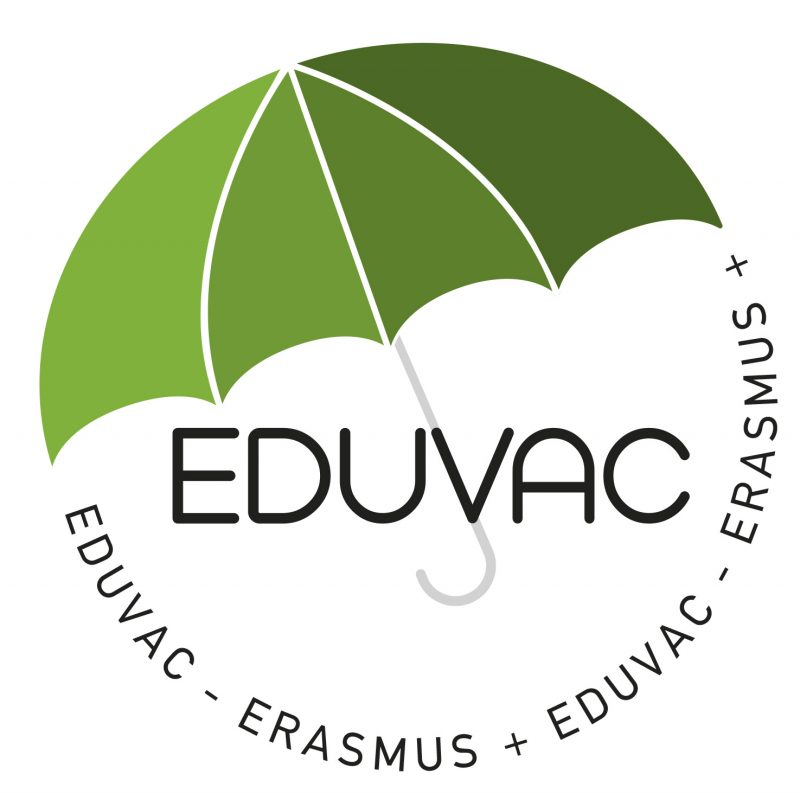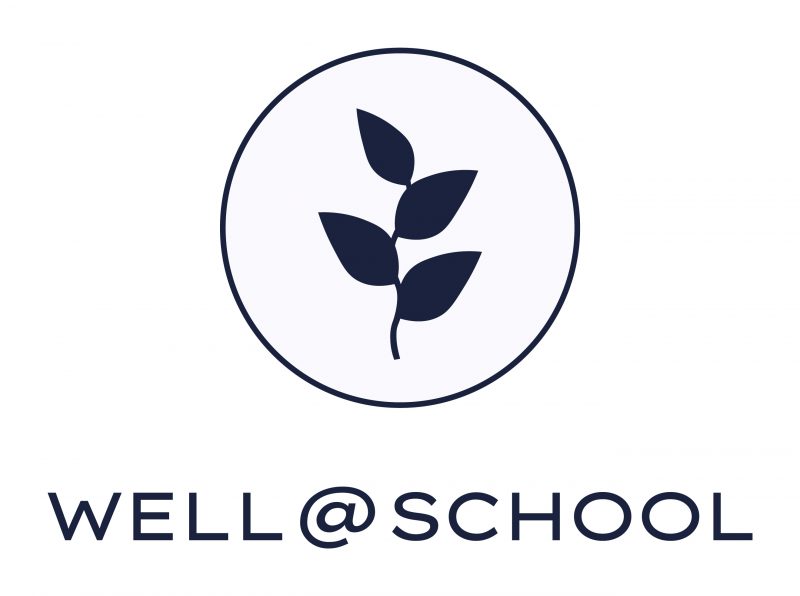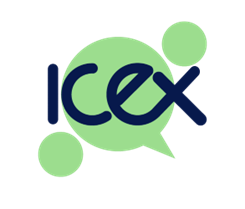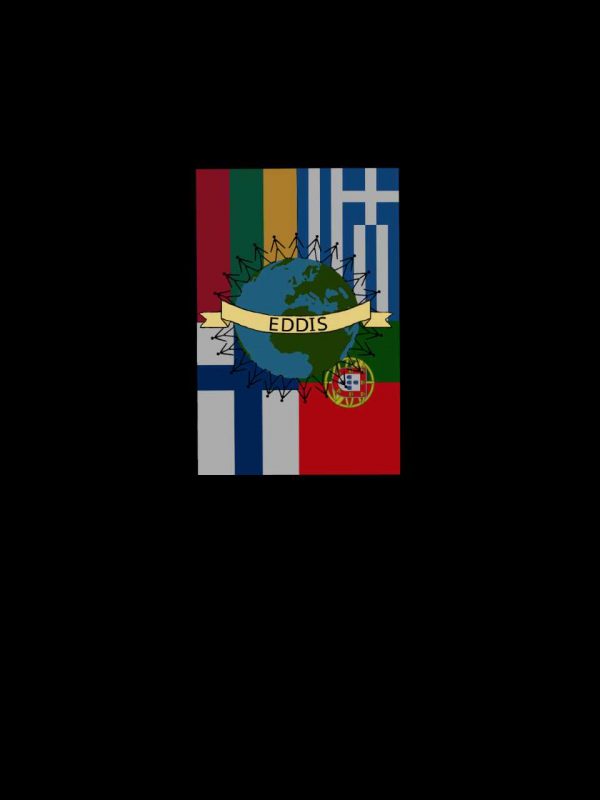Erasmus+ Projects
EDUVAC – Educating Vaccination Competence
In the context of Erasmus+, Partnership Strategies


Participants:
Metropolia University of Applied Sciences (Finland)
University of West Attica (Coordinator)
Trnava University (Slovakia)
University of Vic – Central University of Catalonia (Spain)
University of Modena and Reggio Emilia (Italy)
The aim of the project is to develop knowledge and skills about vaccinations in various population groups. Emphasis will be placed on developing counseling skills to counter the anti-vaccination movement. In the context of the project, educational material will be created using new technologies for an online course (3 ECTS) and a lifelong intensive program (2 ECTS). You can follow our progress and the results on the eduvac.eu website, but also on facebook and twitter .
In the context of Erasmus+, “Knowledge Alliances”
Participants:
Trinity College Dublin (coordinator), Ireland
University of Slaford, United Kingdom
Tampere University of Applied Sciences, Finland
Vives University College, Belgium
Jyväskylä University of Applied Sciences, Finland
University of West Attica
The aim of the project is to strengthen the capacities/skills of the interdisciplinary team in mental health through the collaborative/participatory approach for the co-production of mental health promotion services. Academics, students, service users and health professionals participate in equal roles. The ultimate goal is to provide open access teaching material with the aim of providing knowledge and developing interdisciplinary skills in the context of mental health at an international level.
The project is in its second year of implementation.
You can follow our progress and the results on strenco.eu website, but also on facebook and twitter
EDDIS – A Digital Program for Sexual Education in Secondary Schools
In the context of Erasmus+, Partnership Strategies
Participating tertiary institutions and secondary schools from:
Finland – Turku. Coordinator: Turku University of Applied Sciences
Greece – University of West Attica and 9th High School of Kallithea
Portugal – Lisbon
Lithuania – Klaipeda
The aim of the project is to assess the needs of adolescents in the context of sexual health and sexual education. The ultimate goal is to create material using new technologies that will meet the needs of teenagers. This material will be freely accessible in order to be used both internationally and nationally. The involvement of the teenagers themselves in all stages of the project (design, implementation, evaluation) is the key to the effectiveness of the project. You can follow our progress and the results on the EDDIS website, but also on facebook
ARTHEWE–Multiform Pedagogy in Arts, Health and Wellbeing Education
In the context of Erasmus+, Partnership Strategies
Participants:
- Turku University of Applied Sciences (coordinator), Finland
- The Royal College of Music in Stockholm, Sweden
- MSH Medical School Hamburg, Germany
- University of West Attica
- King’s College London, United Kingdom
- Trinity College Dublin, Ireland
The ARTHEWE project develops and updates multimodal pedagogy, methods and tools in six international pilot courses/themes. The project partners represent different fields of education and approaches to the arts and health. These differences are piloted in courses/themes to find new and innovative ways to approach art and health education, curriculum design and mentoring students from several disciplines.
SHEHAP – Prevention of Sexual Harassment in Secondary Schools
In the context of Erasmus+, Partnership Strategies
Participating tertiary institutions and secondary schools from:
- Finland – T Coordinator: Turku University of Applied Sciences
- Greece – University of West Attica and 9th High School of Kallithea
- Portugal – Lisbon
- Lithuania – Klaipeda
The aim of the project is to increase the capacity of teachers, professionals working in schools, parents and young people between 13–16 years to recognize and prevent sexual harassment. The results of the project strongly reflect the involvement of the young people themselves in all stages of the project, in its design, implementation and evaluation.
Well@School – Developing multi-professional Higher Education for promoting mental health and well-being at schools

In the context of Erasmus+, Partnership Strategies
Participants:
- Turku University of Applied Sciences (coordinator), Finland
- Vilnius University, Lithuania
- University of West Attica
- University of Novo Mesto, Slovenia
- Medical University-Plovdiv, Bulgaria
The aim of the project is to develop a new open access higher education platform that includes material for the promotion of mental health in primary schools, using digital methods. The project will promote key competencies related to mental health promotion as well as the development of digital competencies in communication, co-creation, teaching and training of professionals working in schools (educators, health visitors, etc.).
ICEX – Innovative and Culturally Sensitive Educational Package for Migrants’ Sexual Health Education

In the context of Erasmus+, Partnerships for adult education
Participants:
- Turku University of Applied Sciences, Finland (Coordinator)
- Turku Christian Institute, Finland
- University of West Attica, Greece
- KMOP–Social Action & Innovation Centre, Greece
- Escola Superior de Enfermagem de Lisboa, Portugal
- APF – Family Planning Association, Portugal
- Estonian Refugee Council, Estonia
The purpose of the project is to promote the sexual health and well-being of immigrants/refugees. As part of the project, digital Health Education material will be developed, which will be available online with open access, to increase the knowledge and access to sexual education of immigrants/refugees aged 18-55 and professionals working with immigrants /refugees at the European level.
wExchange

“wExchange” is an Erasmus+ project co-funded by the EU. The overall aim of the project is to develop peer-to-peer learning methods to support mental health literacy and promote mental well-being. All this will be done along with the students, so that the methods are focused on the everyday life of the young people.
The individual objectives of the project are:
1) the promotion of mental health literacy skills of young people (aged 13-16)
2) the creation of peer-to-peer learning activities to promote youth mental well-being
3) the development of virtual exchange methods for schools
4) the practical application of the knowledge gained from the project
The project is going to provide perspectives on multicultural methods and mental health literacy needs through the following activities and outcomes:
Methods of peer-to-peer mental health education
* An informative summary of the evidence on promoting young people’s mental wellbeing through peer/peer peer education and support.
* A research-based summary of youth mental health literacy skills to inform the development of the entire project.
Development of peer-to-peer activities
* An educational package of peer-to-peer peer education methods that can be used in schools to support young people’s mental literacy. These methods are developed together with the students online in the context of international cooperation.
* An evaluation report of piloting the methods for students.
* A digital guide to using virtual exchange methods for teachers. This guide will be translated into 5 different languages (English, Finnish, Portuguese, Greek and Slovenian).
Development of virtual exchange
* A designed and tested virtual student exchange framework. The background of the framework is formed based on previous research and experiences in implementing virtual exchanges and distance education.
*Two online meetings (virtual camps) and two workshops designed by the teachers of the schools together with their students and the experts of the Universities. During their duration, different methods will be tested to support their work.
The following tertiary institutions and secondary schools from five European countries participate in the project:
Turku University of Applied Sciences & Vasaramäki School (Finland – coordinator)
University of West Attica & Kallithea 9th High School “Manos Hatzidakis” (Greece)
Universidade de Lisboa & Agrupamento de Escolas de Santo Antônio (Portugal)
University of Novo Mesto & School Center Novo Mesto (Slovenia)
Klaipėda University & Klaipeda Versme School (Lithuania)



